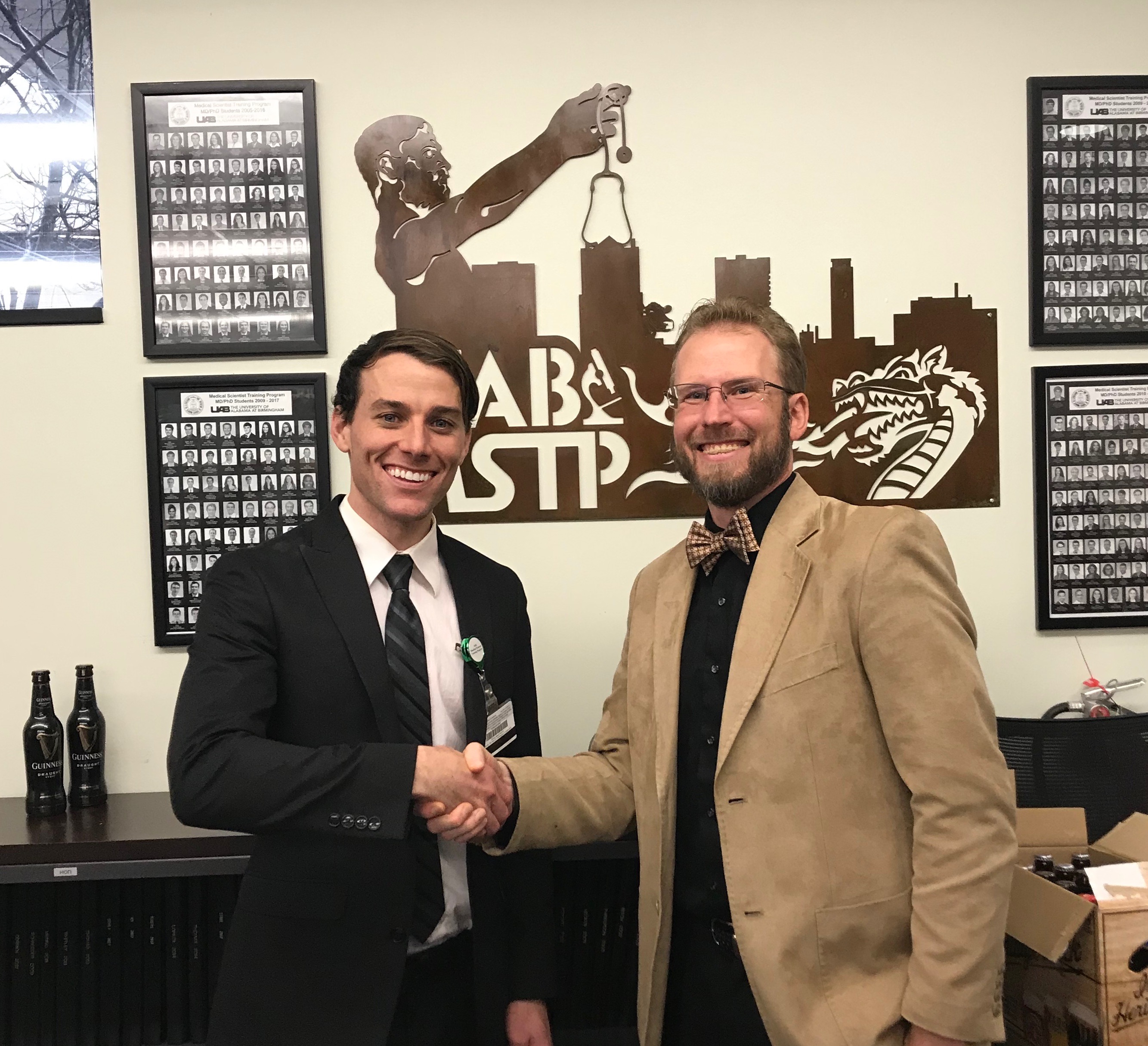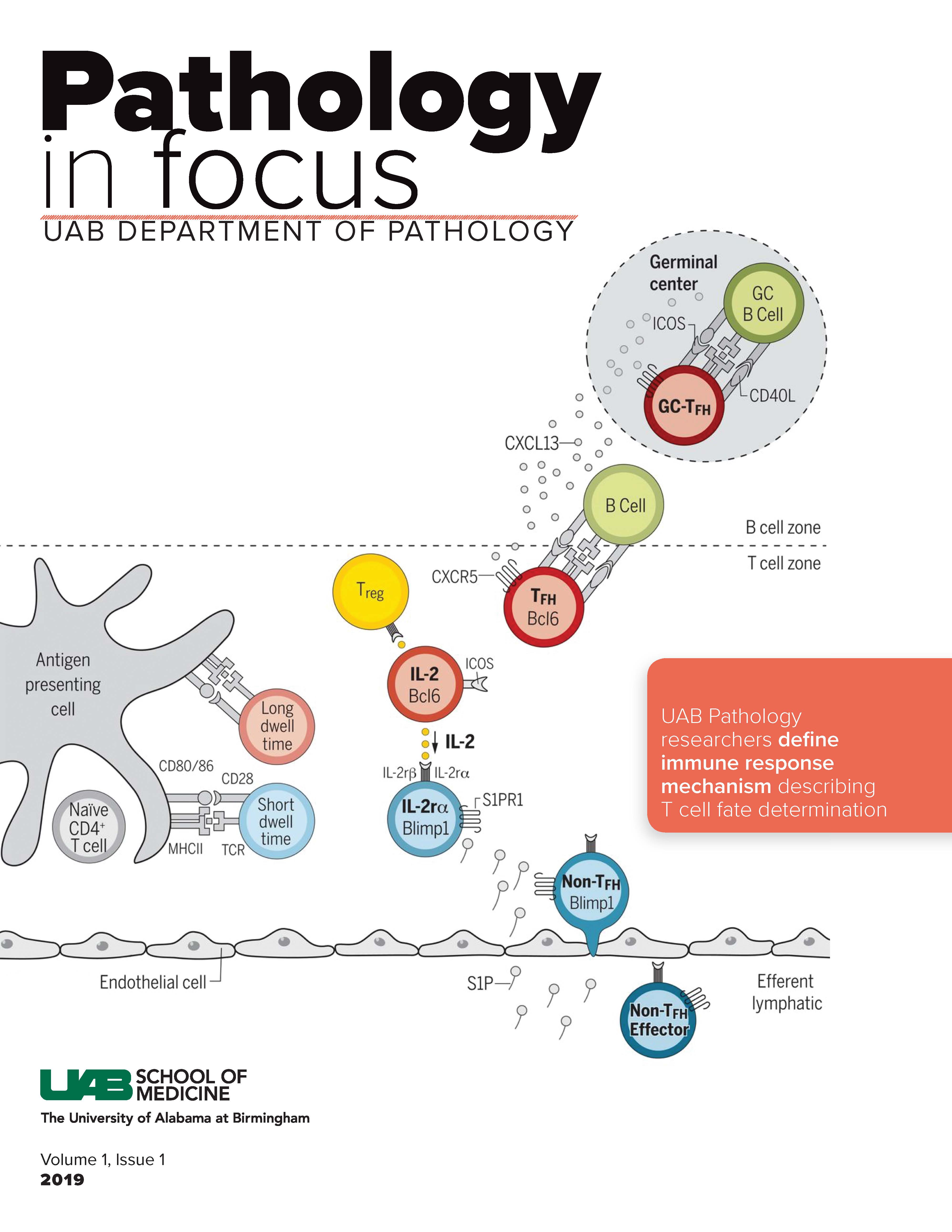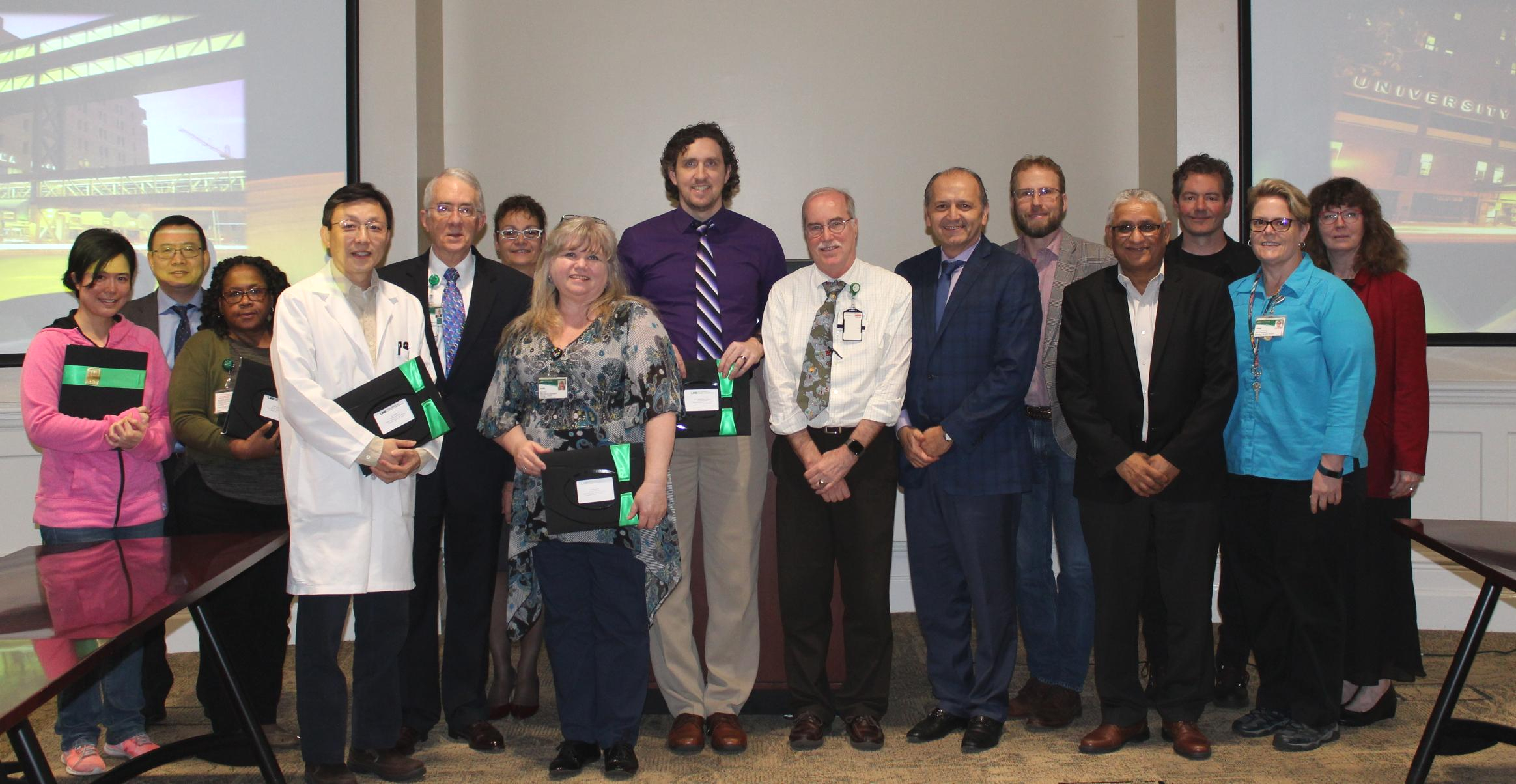Department News
Anatomic Pathology Division Welcomes Two New Faculty
On June 3, the Department welcomed two new faculty to the Division of Anatomic Pathology, directed by Cristina Magi-Galluzzi, M.D., Ph.D.
Deepti Dhall, M.D., joins the UAB Department of Pathology as Professor, Anatomic Pathology.
Paul Benson, M.D., Forensic Pathologist and Medical Examiner, joins the department as Associate Professor, Anatomic Pathology.
Dr. Deepti Dhall received her medical school education at Grant Medical College in Mumbai, India, graduating in 1994. She then completed her residency training in pathology at the same institution in Mumbai before joining a pathology residency training program at Robert Wood Johnson University Hospital, New Jersey, in 2000. Dr. Dhall undertook fellowship training in Oncologic surgical pathology (2004–2005) and Gastrointestinal pathology at Memorial Sloan Kettering Cancer Center (2005–2006) under the mentorship of Dr. David Klimstra, initiating her interest in gastrointestinal tumors, particularly neuroendocrine tumors.
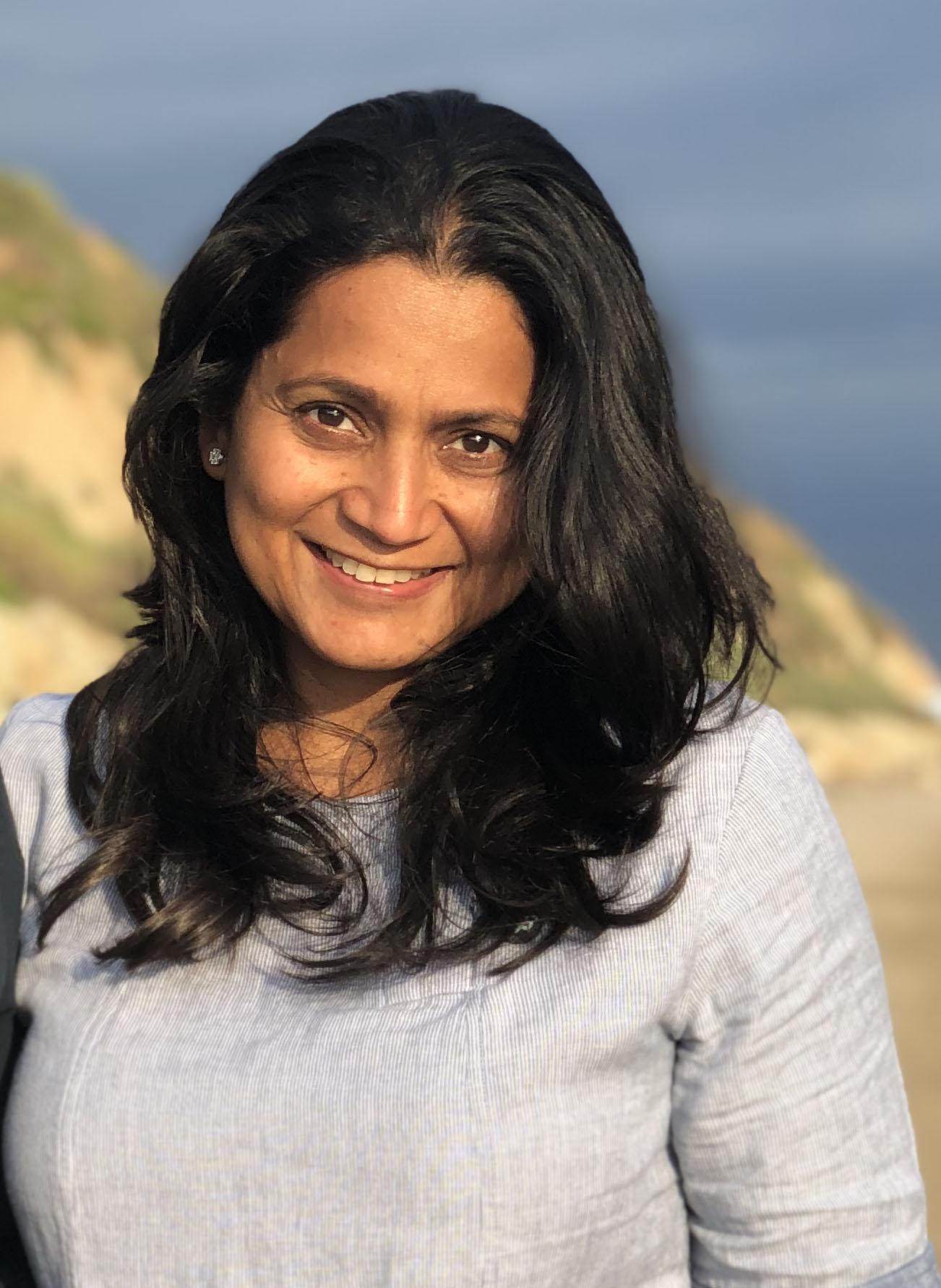
After completing her fellowship training, Dr. Dhall joined Cedars Sinai Medical Center in Los Angeles in 2006, where she practiced as an Attending Pathologist for more than 12 years. She was promoted to Associate Professor, Cedars professorial series, in 2014.
Dr. Dhall’s area of expertise is gastrointestinal and gynecologic pathology, with research interest in neuroendocrine, gastrointestinal and pancreato-biliary tumors.
Dr. Dhall is a member of the Rodger C. Haggitt Gastrointestinal Pathology Society (GIPS), Pancreatobiliary Pathology Society (PBPS) and North American Neuroendocrine Tumor Society (NANETs). She is the recipient of the “Golden Apple” teaching award, presented by the Cedars Sinai Medical Center pathology residents in 2016, and outstanding mentorship award in 2014, presented by the Department of Pathology.
Dr. Paul Benson earned his Doctor of Medicine from The Medical College of Ohio at Toledo before serving as a preliminary intern in Internal Medicine at the University of Maryland Medical System. He completed residency training in Anatomic and Clinical Pathology at the University of Virginia, and is board certified in Anatomic and Clinical Pathology. After a fellowship in Forensic Pathology at the Office of the Chief Medical Examiner in Richmond, Virginia, Dr. Benson became board certified in Forensic Pathology.

Benson taught autopsy and forensic pathology as Assistant Professor at The Quillen College of Medicine at East Tennessee State University for two years before returning to Virginia as Assistant Chief Medical Examiner for the Office of the Chief Medical Examiner in Roanoke, where he practiced forensic pathology for six years with teaching appointments at The Edward Via College of Osteopathic Medicine, Blacksburg, Virginia, and the Medical College of Virginia, Richmond, Virginia. In 2014, Dr. Benson was appointed Assistant Professor in Forensic Pathology and Assistant Medical Examiner for Shelby County, Tennessee, at the University of Tennessee Health Science Center (UTHSC) in Memphis. As Program Director of the UTHSC Forensic Pathology Fellowship, he reinstated the Forensic Pathology Fellowship in Memphis. Benson has performed approximately 4,000 autopsies and testified in state and federal courts more than 100 times as an expert witness in Forensic Pathology. Dr. Benson’s current interests are primarily in teaching autopsy and forensic pathology.
New review identifies four hallmarks of cancer metastasis
By Adam Pope
Researchers at the University of Alabama at Birmingham and the University of Kansas Cancer Center have identified four hallmarks of cancer metastasis — when cancer has spread to different parts of the body from where it started. Metastasis is believed to be the cause of up to 90 percent of cancer deaths.
Douglas Hurst, Ph.D., assistant professor in the UAB Department of Pathology, and Danny Welch, Ph.D., associate director of Education at the KUCC, conducted a literature review of more than 10,000 publications on metastasis, and published their findings in Cancer Research, from the American Association for Cancer Research.
Metastasis can be very difficult to treat. Virtually any cancer type can form metastatic tumors. The most common sites for cancers to metastasize include the brain, bones, lungs and liver. Other areas include the adrenal gland, lymph nodes, skin and other organs.
By defining the unique properties of metastatic cancer cells, Hurst says, he hopes to provide a conceptual framework to accelerate the discovery of treatment strategies.
“Our attempts to identify the underlying first principles of the metastatic process hopefully provide a means for simplifying the processes that are essential for all metastases to develop,” the authors said in the review.
Hurst and Welch identified four hallmarks of metastasis:
- Motility and invasion
- Modulation of the microenvironment
- Plasticity
- Ability to colonize
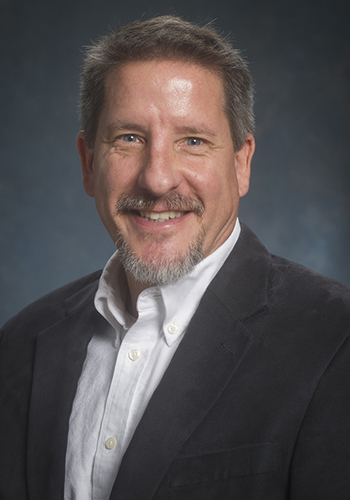 Douglas Hurst, Ph.D.Defining the hallmarks of metastasis has been complicated by both heterogeneity among tumor cells, and the myriad interactions with other molecules and cells throughout the process, according to the authors.
Douglas Hurst, Ph.D.Defining the hallmarks of metastasis has been complicated by both heterogeneity among tumor cells, and the myriad interactions with other molecules and cells throughout the process, according to the authors.
Hurst and Welch say they hope that refining definitions and bringing together diverse data will identify vulnerabilities that metastasis researchers can exploit in the quest to treat cancer metastasis.
Hurst, who also serves as an associate scientist at the O’Neal Comprehensive Cancer Center at UAB, explains why metastasis is hard to understand.
“Metastasis is a highly complex pathological process,” Hurst said. “Increased specificity in defining the underlying principles is important to better understand and interpret the literature to move forward in the development of therapeutic interventions.”
The Hurst lab has been funded by grants from the American Cancer Society, METAvivor Research and Support, Inc., and the Elsa U. Pardee Foundation, as well as the Department of Pathology.
In May, the American Cancer Society posted an episode of its "TheoryLab" podcast to iTunes, featuring Drs. Hurst and Welch speaking about their research. Listen here.
George Netto, M.D., Department Chair, Publishes in Human Pathology, Modern Pathology
The first, "Targeted Sequencing of Plasmacytoid Urothelial Carcinoma Reveals Frequent TERT Promoter Mutations," was published in the March 2019 issue, Volume 85.
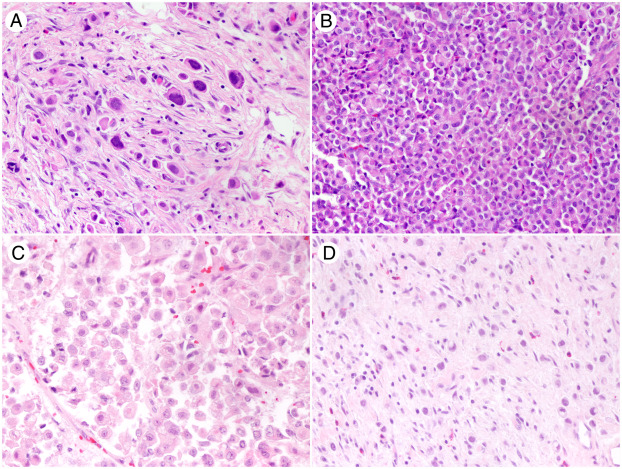
Alex Dussaq, M.D., Ph.D., Wins the 2019 William Boyd Medal in Pathology
Alex M. Dussaq, M.D., Ph.D., was awarded the William Boyd Medal at the School of Medicine Awards Ceremony on Friday, May 17. The Boyd Medal is given every year to the medical student whose performance in all aspects of their pathology education has been most outstanding.

Dr. Dussaq, a native of Reno, Nevada, came to Birmingham to join the Medical Scientist Training Program (MD-PHD) at UAB. His research centered around developing innovative bioinformatics approaches to solve clinical problems. He worked in the UAB Department of Pathology Division of Genomics Diagnostics and Bioinformatics as well as studied with Christopher Willey M.D., Ph.D. from the UAB Hazelrig Salter Radiation Oncology Center. Dussaq has accepted a position in the Pathology Residency Program at Stanford University.
Read moreTwo Pathology Faculty Receive 2019 Dean's Excellence Awards
Two of our esteemed faculty were selected as recipients of the 2019 School of Medicine Dean's Excellence Awards.
Vishnu Reddy, M.D., Professor, Anatomic Pathology, receives the 2019 Dean's Excellence Award in Service, Senior Faculty.
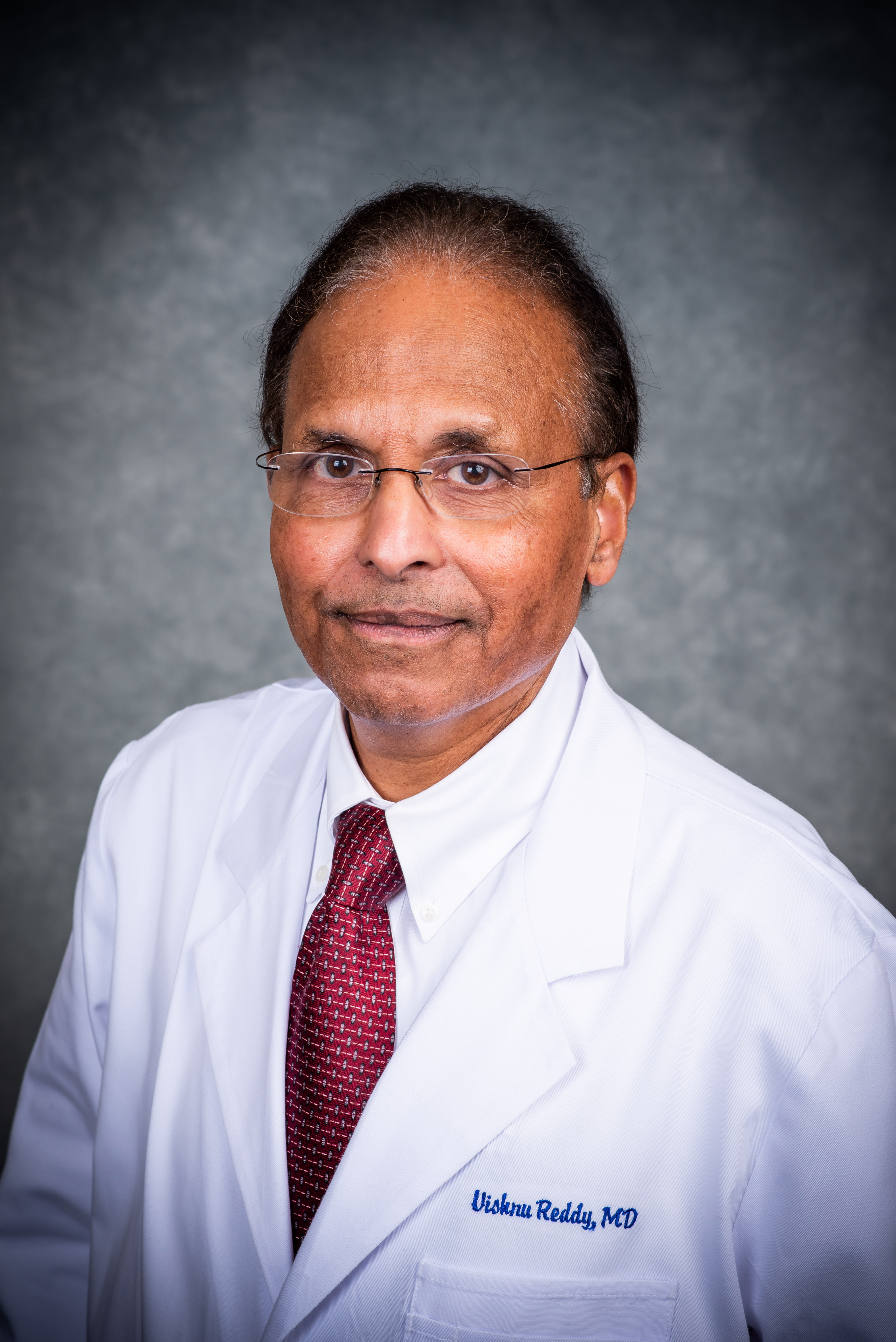
Yabing Chen, Ph.D., Vice Chair for Faculty Development and Education and Professor, Pathology, receives the 2019 Dean's Excellence Award in Mentorship, Senior Faculty.
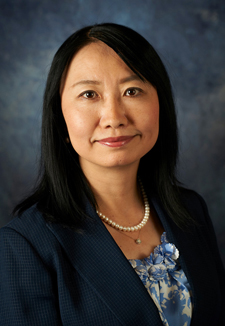
Reddy and Chen represent two of this year's 18 award winners.
These annual honors recognize outstanding contributions made by faculty across the School of Medicine--one to a junior faculty member (instructor or assistant professor) and the other to a senior faculty member (associate or full professor)--in the areas of service, teaching, research, mentorship, and diversity enhancement.
Awardees are selected through a peer-review process facilitated by a member of the dean's leadership team.
In March, Dr. Reddy was honored with the naming of a conference room in the North Pavilion for him.
"We are very pleased to have this recognition bestowed on two of our deserving colleagues for their years of service and mentorship to the Department and the school," said George Netto, M.D., Chair, UAB Department of Pathology. "We look forward to celebrating these individuals at an event in June with their peers and school leadership."
Three Faculty Awarded for Endowed Professorships/Emeritus Status
Congratulations are in order for three of our Department faculty recently recognized for their holding of endowed professorships, and one emeritus status.
Cristina Magi-Galluzzi, M.D., Ph.D., Division Director, Anatomic Pathology, was officially approved as the holder of the C. Bruce Alexander Endowed Professorship in Pathology by the Board of Trustees on April 12.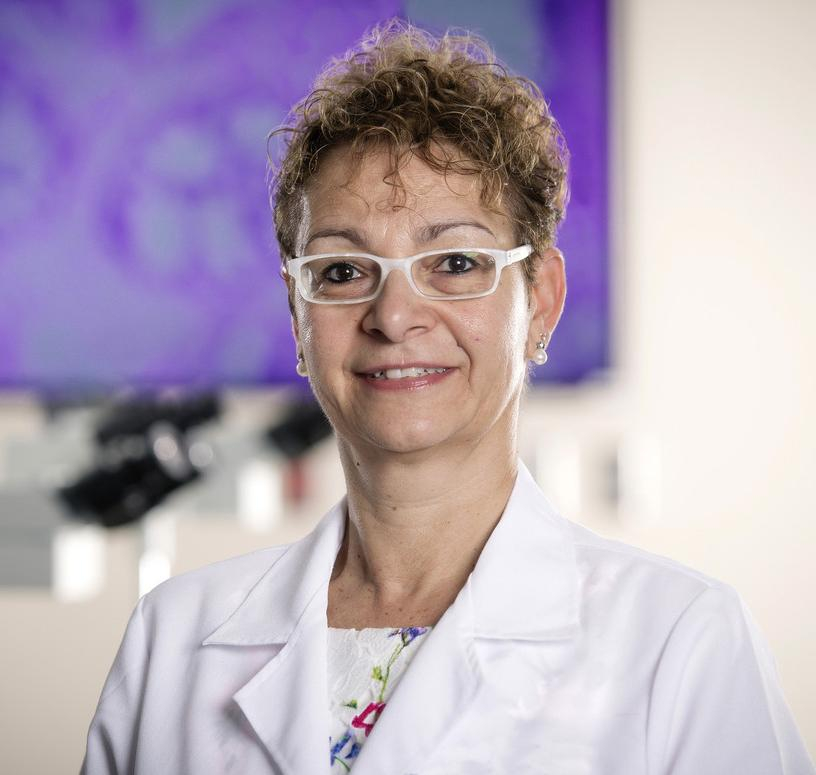 Cristina Magi Galluzzi, M.D., Ph.D., Division Director, Anatomic Pathology
Cristina Magi Galluzzi, M.D., Ph.D., Division Director, Anatomic Pathology
Anna Yemelyanova, M.D., Professor, was honored at a reception held by the School of Medicine on April 18 for her appointment as the inaugural Hazel Gore, M.D., Professorship in Gynecologic Pathology, approved by the Board of Trustees on October 18, 2018. Read more.

Stephen Moser, M.D., received his certificate of Professor Emeritus status from George Netto, M.D., Chair, this month. Moser retired from full-time service to the Department in February 2019. Read more.
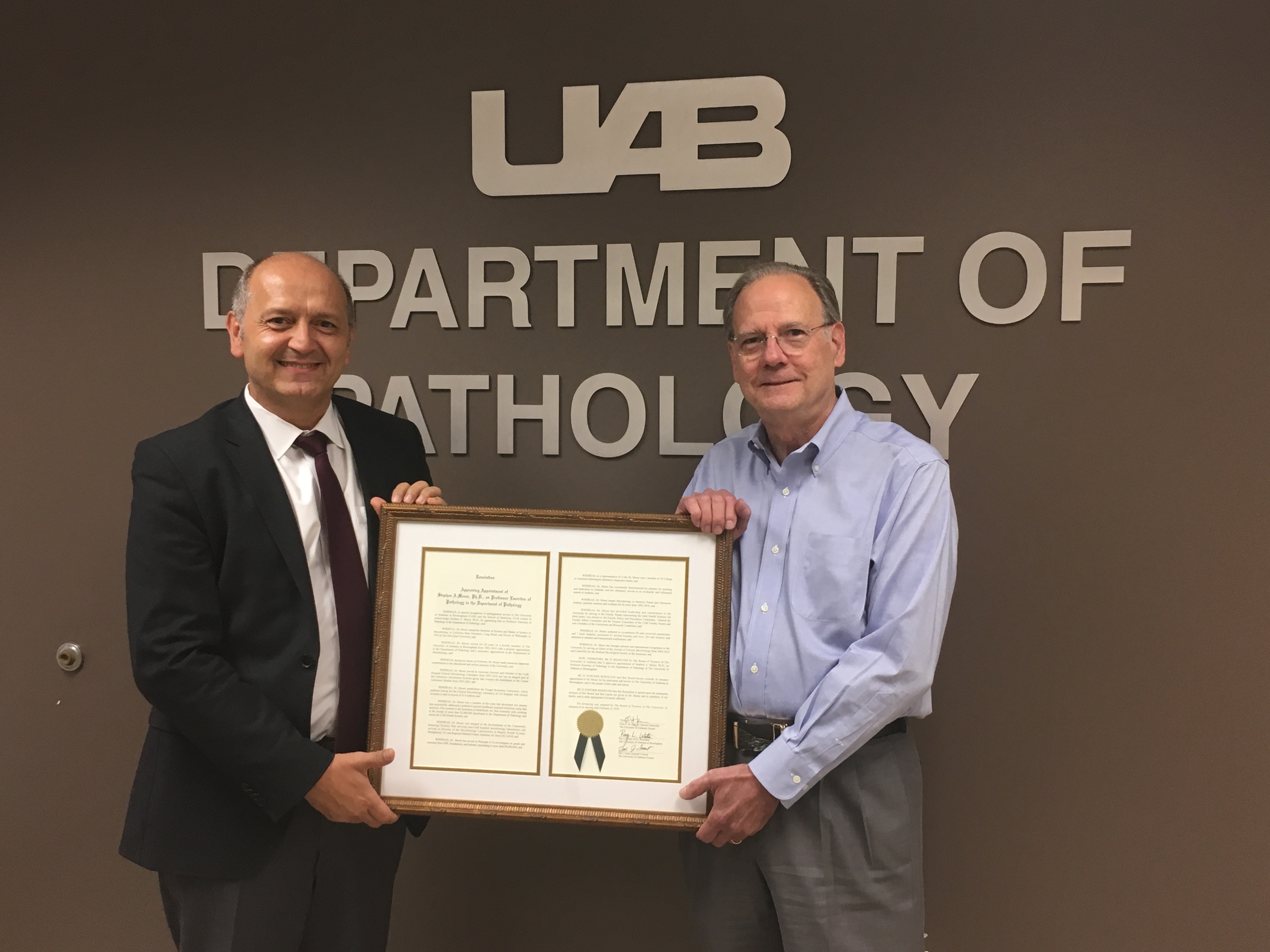
Marques Joins American Board of Pathology Test Committee for Blood Banking/Transfusion
Congratulations to Marisa Marques, M.D., Professor, Laboratory Medicine, who has accepted a nomination to join the American Board of Pathology (ABPath) Test Development and Advisory Committee for Blood Banking/Transfusion Medicine, beginning January 2020.
The organization explains the role as follows: "To be appointed to a TDAC means a physician is an established subject matter expert in their subspecialty field and is current on the latest advances in the continually evolving field of pathology and patient care. TDAC committee members develop and review examination questions for statistical performance and relevance to current practice. They contribute to the validity of examinations by determining the content and distribution of items on examinations (exam blueprints). The TDACs also advise the ABPath on issues in their subspecialty area of expertise."
Since 1971, the ABPath has appointed test committees for the various areas of pathology. The committees consist of ABPath trustees, and other pathologists and physicians who are recognized experts in the various disciplines. In 2001, the role of these committees was expanded to include subject matter an advisory function for the Board.
“As TDAC members, these physicians play a critical role in the development of the exams and are entrusted with maintaining the integrity of the board-certified designation. The appointment to a TDAC indicates the physician is highly regarded in the field of pathology and exemplifies the utmost standards of care,” states Rebecca L. Johnson, M.D., CEO of the American Board of Pathology.
Marques is the first former UAB Medicine Pathology resident to be invited to be part of the ABPath.

McDonald Supports Department with Generous Donation
Jay McDonald, M.D., Professor Emeritus and former chair of the Department of Pathology, is a champion of the department who, with his wife Sarah, continue to generously support its mission. In 2010, Dr. and Mrs. McDonald established the Jay M. McDonald Endowed Professorship in Bone Pathobiology. Five years later, the McDonalds generously funded the Jay M. McDonald Endowed Professor in Laboratory Medicine. In late 2018, the McDonalds pledged continued support of the Laboratory Medicine Endowment to elevate it from a Professorship to a Chair.
McDonald’s academic career spanned three decades and included Directorship of the Division of Laboratory Medicine in the Departments of Pathology and Medicine at Washington University School of Medicine in St. Louis for 10 years prior to his recruitment to UAB in 1990 to Chair the Department. He served as Chair of UAB Pathology from 1990-2008, and was Editor-in-Chief of the primary pathology research journal, The American Journal of Pathology, from 2003-2008. He directed an NIH-funded Center for Metabolic Bone Disease—one of five in the country—from 1996-2010.
“Dr. McDonald’s continued commitment to the UAB Department of Pathology illustrates his dedication to and passion for the field,” says George Netto, M.D., Chair. “In his tenure as chair, McDonald grew the department into prominence nationally, increasing faculty and research funding to make it one of the country’s top-ranked programs. The impact of his ongoing role supporting excellence in research and teaching through these endowments continues to be felt deeply by the next generation of UAB pathologists.”
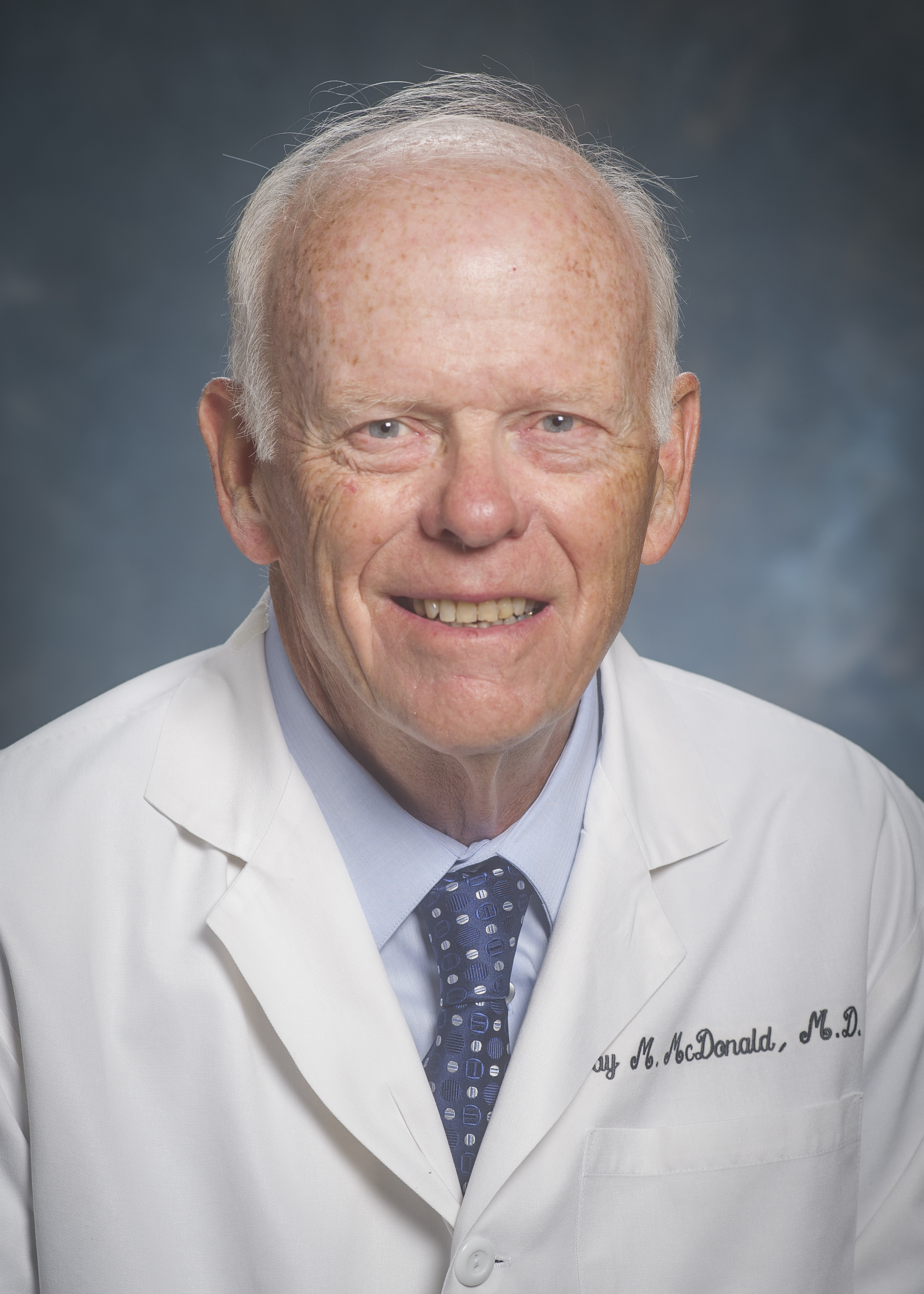 Dr. Jay M. McDonald, M.D., Professor Emeritus, UAB Pathology
Dr. Jay M. McDonald, M.D., Professor Emeritus, UAB Pathology
Anderson Publishes 5e, "Human Histology"
Peter Anderson, D.V.M., Ph.D., Professor of Molecular and Cellular Pathology, and Director of Pathology Undergraduate Education, in March celebrated the publication of the 5th edition of the book, Human Histology, of which he is an author.
Published by Elsevier, the book is described by the publisher as, "easy to read, well organized, and focused on high-yield content." The topic is core knowledge in the complex field of histology. It is a textbook written with students in all health care areas in mind. The new edition includes developments in integrated and problem-based learning, allowing for students to make connections between histological knowledge, cell biology, anatomy, clinical understanding and assessment.
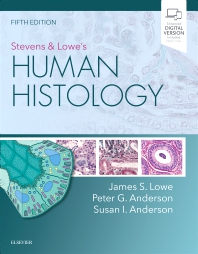

Lalita Shevde's Research Featured by Department of Defense
This week, the research of Lalita Shevde-Samant, Ph.D., Professor, Molecular & Cellular Pathology, was featured by the Department of Defense's Congressionally Directed Medical Research Programs in an article on their website, titled, "Reprogramming the Pro-Tumorigenic Immune Microenvironment to Anti-Tumorigenic in Breast Cancer." The piece features breast cancer research, for which Shevde received follow-on funding through the Department of Defense’s (DoD’s) BCRP with a Breakthrough Funding Level 2 Award.
Shevde-Samant is Associate Director for Education and Training for the O’Neal Comprehensive Cancer Center at UAB. In February, the Breast Cancer Research Foundation of Alabama presented $1 million -- its largest donation to date -- to the O'Neal Comprehensive Cancer Center. This annual donation provides pilot money for clinical research projects, including Samant's investigation of the hyperglycemic state of triple negative breast cancers. Triple negative cancer cells have been shown to be more aggressive and capable of suppressing the immune system, preventing it from recognizing and killing the cancer cells. With BCRFA funding, Samant and her team will now examine whether combining a diabetes drug with a treatment that targets triple negative breast cancer cells will improve outcomes. This study will likely lead to a clinical trial for diabetic triple negative breast cancer patients.
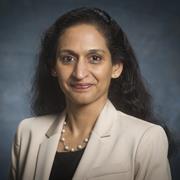 Dr. Lalita Shevde-Samant, Professor, UAB Pathology
Dr. Lalita Shevde-Samant, Professor, UAB Pathology
In the article, Dr. Shevde states, “We established a new concept that breast cancer cells mediate a ‘conversation’ or a crosstalk with tumor-infiltrating macrophages via Hedgehog ligands that act as ‘conversational’ molecules; this results in immense molecular changes in macrophages that functionally recalibrates them to an immune-suppressive, tumor-promoting state. I am very grateful to the DoD BCRP for funding my research program over the past several years on Hedgehog signaling; cumulatively, these investments have enabled me to take on new challenges to modify the breast tumor microenvironment towards eliminating breast cancer.”
Her work has led to the discovery of this novel signaling paradigm. From the article,"Many of the macrophage-targeting treatments currently in clinical trials abrogate not just the recruitment of M2 macrophages but M1 as well. Thus, more targeted approaches, such as the one Dr. Shevde is taking, are needed so as to specifically target the tumor-promoting macrophages while preserving the function and integrity of the tumor-killing M1 macrophages."
Department Publishes Inaugural Issue, Pathology In Focus
It is our pleasure to announce the publication of our inaugural issue of Pathology in Focus, a magazine covering the recent clinical, educational and research activities and successes of the UAB Department of Pathology. It is a chance to highlight our accolades, which in 2018 were many.
We hope you enjoy this overview of some of our faculty, staff, researcher and students’ many accomplishments: https://issuu.com/uabpathology/docs/391118_-_uab_pathology_magazine_v1_
For news updates between issues, we offer a monthly digital newsletter, available online: https://www.uab.edu/medicine/pathology/news-events/pathology-newsletters. You may subscribe to UAB Pathology E-news here: https://signup.e2ma.net/signup/1870768/1812726/. Our website’s News & Events section is another great way to keep up with the latest events and announcements. And follow us on Twitter, where we highlight our Case of the Week and other news.
Please send us your feedback, including any of your own news you’d like to share. We look forward to engaging with you in the near future. Reach out to editor Christina Crowe, Communications Director, with story ideas, comments and more: ccrowe@uabmc.edu.
Pathology Researchers' Article Featured in Newsletter
A journal article by researchers in the UAB Department of Pathology is featured in this month's "Lippincott Journals Hot Topics in Pathology" newsletter, distributed by publisher Wolters Kluwer.
The article, "PAX8 Expression in Solitary Fibrous Tumor: A Potential Diagnostic Pitfall," was published in Applied Immunohistochemistry & Molecular Morphology, the official journal of the International Society for Immunohistochemistry and Molecular Morphology (ISIMM).
The article was authored by David Ullman, M.D.; Jennifer Gordetsky, M.D.; Gene Siegal, M.D., Ph.D.; Carlos Prieto-Granada, M.D.; Shi Wei, M.D., Ph.D.; and Todd Stevens, M.D.
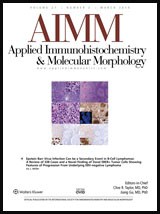
Miller Selected as Division Director of Neuropathology
The University of Alabama at Birmingham Division of Neuropathology has named C. Ryan Miller, M.D., Ph.D., as division director.
Miller was most recently a professor in the Department of Pathology and Laboratory Medicine at the University of North Carolina-Chapel Hill. Miller also served as faculty director of the UNC Translational Pathology Laboratory in conjunction with the Lineberger Comprehensive Cancer Center.
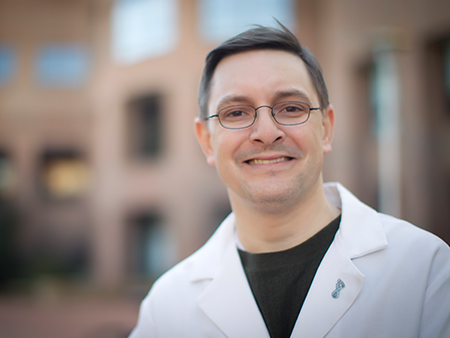
“We are excited to have Dr. Miller back at UAB in the Department of Pathology, where his experience in research on tumors of the brain and work with proteomics will enhance the Neuropathology Division’s portfolio for future growth in this important area,” said Department of Pathology Chair George Netto, M.D.
Miller’s return is a homecoming of sorts. In 1999, prior to medical school, he completed a Ph.D. in the department’s Cellular and Molecular Pathology Graduate Program. He earned his medical degree from the UAB School of Medicine in 2002 and completed a postdoctoral fellowship in the UAB Brain Treatment and Research Program. Miller then moved to Washington University School of Medicine, where he completed a residency in anatomic pathology in 2004 and a fellowship in neuropathology in 2006.
Miller’s research interests focus on novel treatment approaches for malignant gliomas based on molecular alterations for tumorigenesis, using proteomic molecular analyses.
Miller also serves on the neuropathology and neuro-oncology committees of the National Cancer Institute’s Alliance for Clinical Trials in Oncology.
Miller replaces interim division director Vishnu Reddy, M.D., professor in the Division of Laboratory Medicine. His start date is April 15.
Original UAB News article by Adam Pope.
Grizzle Recognized by ISBER with 2019 Founder's Award
Congratulations to William Grizzle, M.D., Ph.D., Professor, Anatomic Pathology, who was recognized recently by the International Society for Biological and Environmental Repositories (ISBER) with the 2019 Founder's Award. Dr. Grizzle will be presented with this award at the organization's annual meeting in Shanghai, China, May 7-10. ISBER is a global biobanking organization.
"Dr. Grizzle has been a leading individual with great foresight to recognize biobanking as an important and emerging field in science," says David Lewandowski, ISBER President 2018-19. "Since helping to establish ISBER in 1999, he has worked tirelessly to provide the evidence-base to support best practices in biobanking. He is highly regarded by his peers as a reviewer and trainer for start-up biobanks domestically and internationally. We look forward to presenting him with the Prestigious ISBER Founder’s Award in Shanghai at ISBER’s 20th anniversary May 7-10.”
Dr. Grizzle has an AB honors degree (Chemistry and Physics) from Harvard University and Ph.D. (Biophysics) and M.D. degrees from Johns Hopkins University. He is board certified in Anatomic and Clinical Pathology. He served as Head of the Autopsy Section at the UAB and VA hospitals in Birmingham, Alabama, from 1990-2000 and has been head of the program in Translational Research in Neoplasia of the Department of Pathology since 2000. His current research interests include fatty acids in cancer; validation of molecular biomarkers; exosomes and post-transcriptional regulation; molecular imaging, especially multispectral optoacoustic tomography; and biorepository sciences.
Since 1983 Grizzle has served as Director of UAB's Tissue Collection and Banking Facility, and was principle investigator of the Southern Division of the Cooperative Human Tissue Network (CHTN) from 1987-2019, and Director, Biorepository of the Pulmonary Hypertension Breakthrough Initiative (PBHI) from 2006-2019.
Grizzle frequently consults for national and international biorepositories and governmental agencies. He presents workshops on factors accreting and limiting the use of human tissues in research, and histochemical and immunohistochemical staining. He and colleague Katherine Sexton present national and international workshops on the design and operations of biorepositories.
Dr. Grizzle is a founding member of ISBER, and a former council member and President of the organization. In 2015 he received the ISBER Award for Outstanding Achievement in Biobanking. He was a trustee of the Biological Statin Commission (BSC) from 1992-2017, serving as President (2000-2004) and Vice-President (1996-2000). In 2017 Grizzle became a trustee emeritus of the organization.
Grizzle served as a Senior Editor of Clinical Cancer Research from 2010 to 2017, and has served on the editorial boards of numerous other journals. He is currently on the board of Biopreservation and Biobanking; Biotechnic & Histochemistry, and Clinical Cancer Research, and is an associate editor of Cancer Biomarkers. He has published more than 500 peer-reviewed manuscripts and book chapters.

William Grizzle, M.D., Ph.D., Professor, Anatomic Pathology, UAB Department of Pathology
"We are thrilled for Dr. Grizzle at this esteemed recognition from the ISBER on his behalf," says George Netto, M.D., Chair of the Department of Pathology. "His work and expertise in biobanking and biorepositories span several decades, making him one of the field's most respected experts. We thank the ISBER for extending Dr. Grizzle this honor."
Read moreUSCAP Conference 2019 a Success
The United States and Canadian Academy of Pathology (USCAP) hosted its 108th annual meeting March 16-21, 2019, at the Gaylord National Resort & Convention Center in National Harbor, Maryland, where many of our Department faculty, residents and fellows present recent work. It is the largest world meeting of pathologists.

On Sunday March, 17, Chairman and Professor George Netto, M.D., kicked things off with a talk on "Liquid Biopsy in Precision Oncology: Plasma and Beyond!" at the College of American Pathogists' companion meeting. That evening at 5:30-7:30pm, our team hosted a booth at the Fellowship Fair, featuring information about our fellowship opportunities, giveaways and more. The coursework and poster sessions continued throughout the week until the conference conclusion on Thursday, March 21.
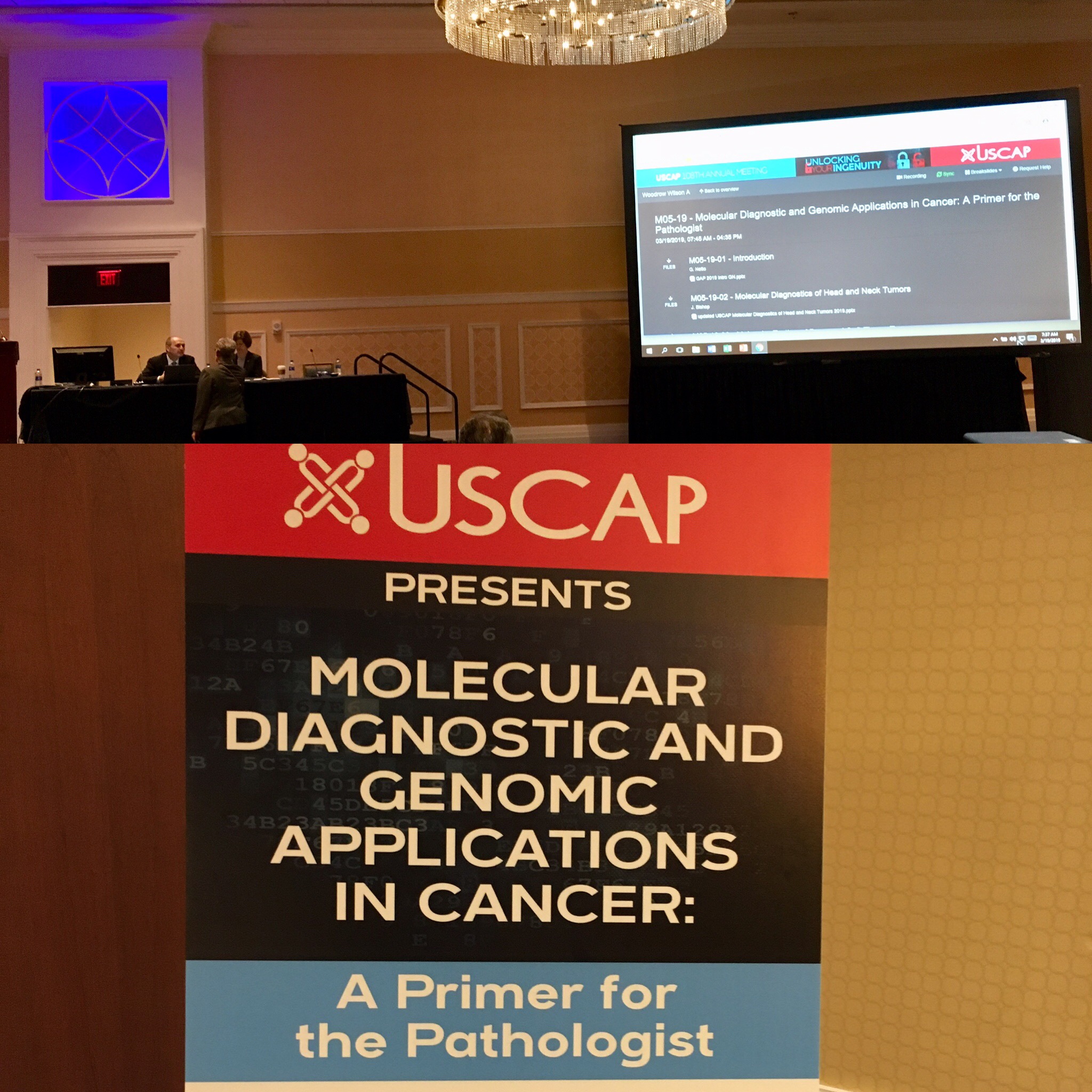
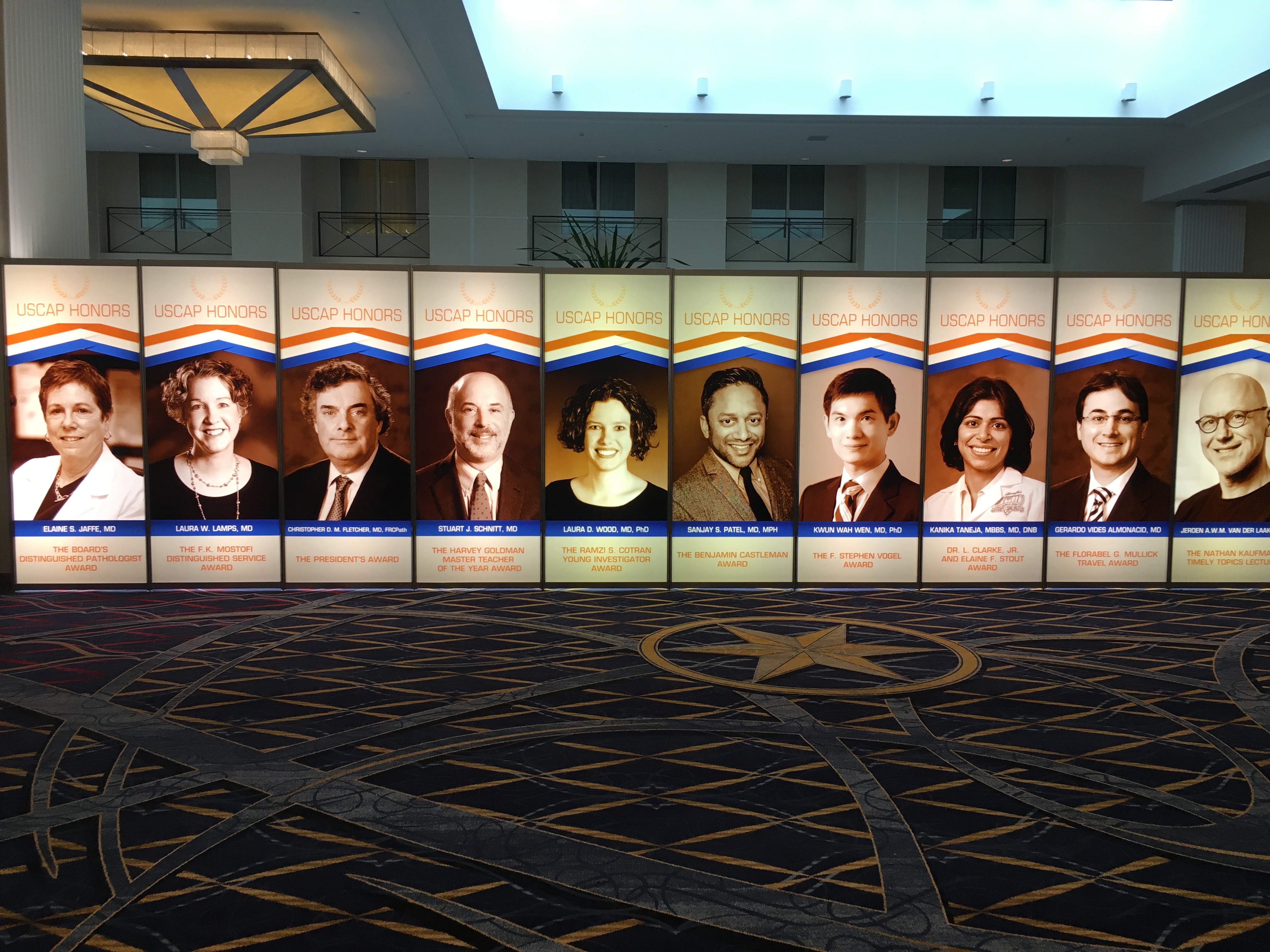
Monday throughout the day our faculty presented posters and talks, including a Genitourinary Platform presentation, "Is MRI/US Fusion-Targeted Biopsy Alone Adequate for Detecting Prostate Cancer in Patients with a Prior Negative Prostate Biopsy?" featuring Maria del Carmen Rodriguez Pena, M.D., Marie-Lise Eich, M.D., and Jennifer Gordetsky, M.D. That evening the Department hosted a reception for all current and former faculty, staff and students, 5-7:30 p.m. in the National Harbor Room 8.
Read moreCongratulations Incoming Pathology Residents
Congratulations to all of the residents who matched today. We are excited to welcome the following individuals to our 2020 residency class: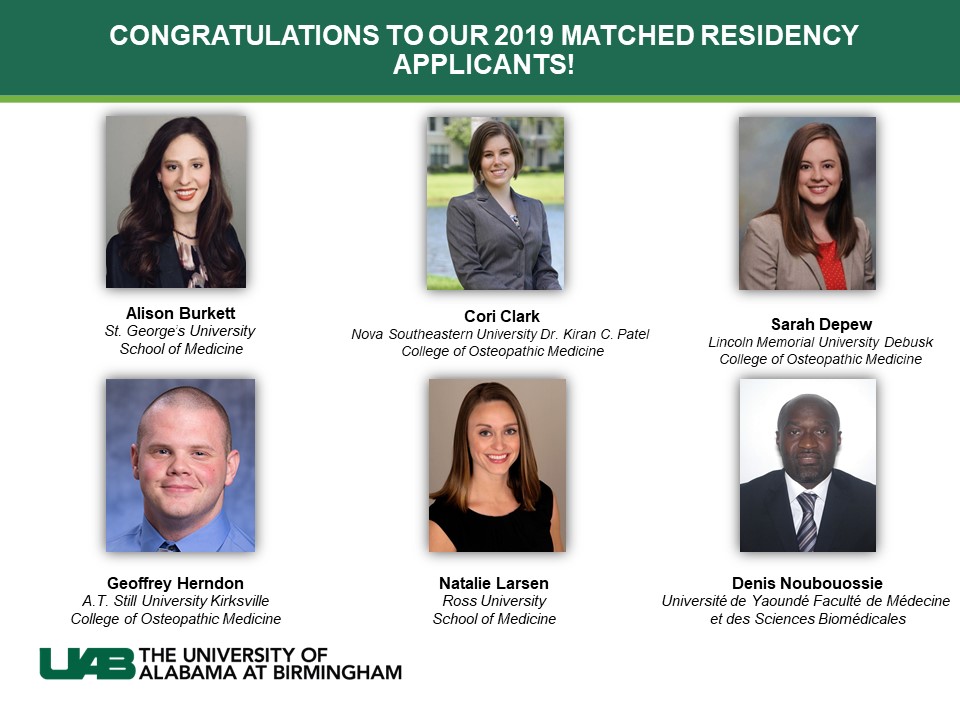
You can watch UAB School of Medicine's Match Day ceremony from this year and previous years online, here.
Rakesh Patel, Ph.D., Appointed Vice Chair for Research, UAB Pathology
Congratulations to Rakesh Patel, Ph.D., Professor, Molecular & Cellular Pathology, on his appointment as Vice Chair of Research, UAB Department of Pathology. Dr. Patel has held the interim position for more than a year. In that time, he helped to coordinate and host a Research Retreat for the Department. The program to fund translational research pilot awards stemmed from that initial retreat, and the event will take place again this year in August.
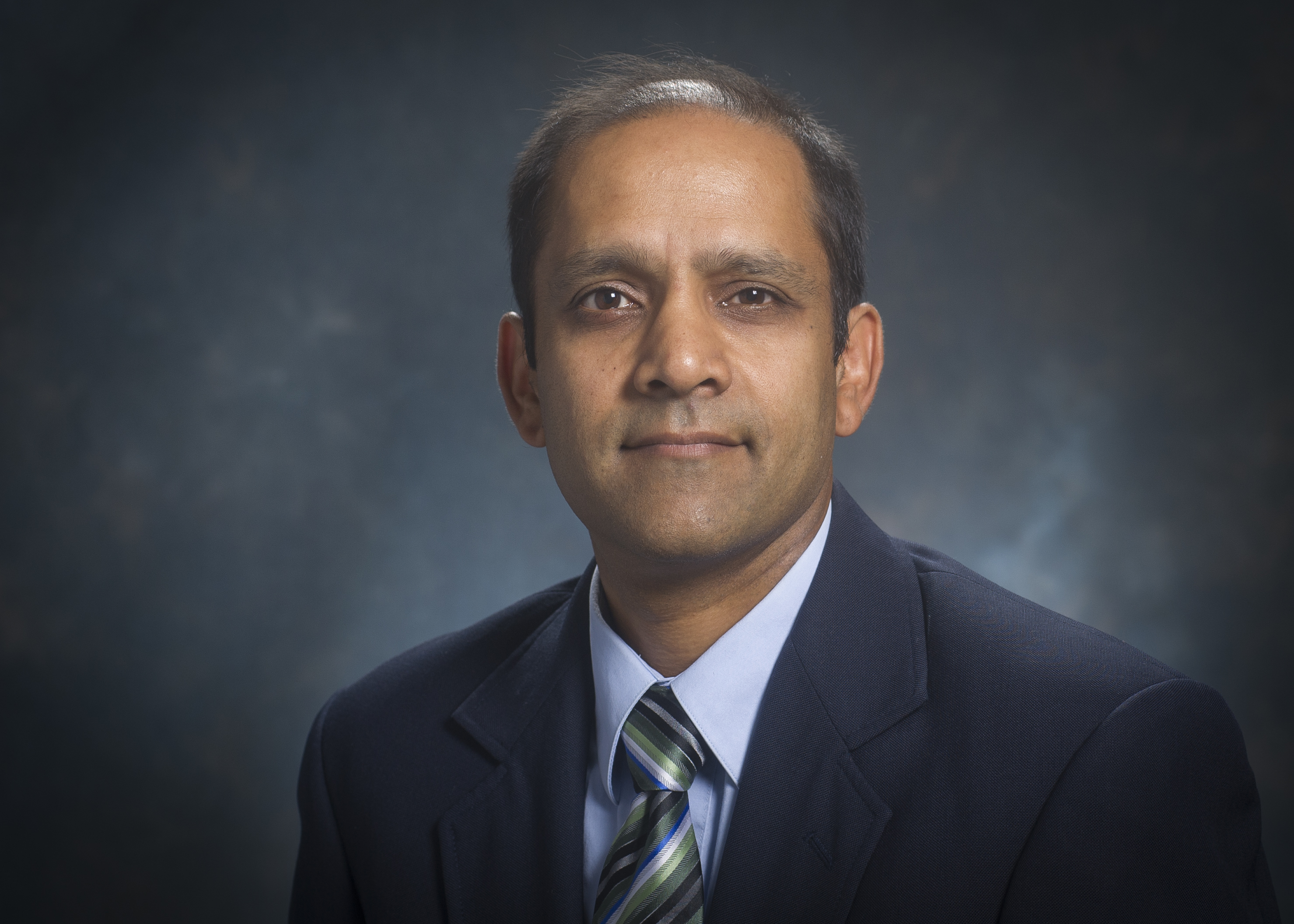
Dr. Patel received his Ph.D. from the University of Essex, UK in 1996. He moved to the U.S. to pursue post-doctoral studies at UAB in 1997, and joined the faculty of the Department of Pathology as an instructor in 1999. Currently he is Director of the UAB Center for Free Radical Biology. He maintains an internationally recognized research program, having engaged in Free Radical Research for more than 20 years. Dr. Patel has published more than 200 articles, reviews, book chapters and editorials (view list). He has organized meetings and symposia focused on oxidative stress and nitric oxide, and multiple forums including co-chairing the Oxygen Radical Gordon Research Conference in 2016. He is also a fellow of the Society for Redox Biology and Medicine (SfRBM), from which he received a Mentoring Excellence Award in 2016. He has served on the Editorial Board of FRBM for 15 years; served as Associate Editor for AJP-Lung Cellular and Molecular Physiology, reviews editor for the Nitric Oxide journal between 2015 and 2018, and is currently reviews editor for the Redox Biology Journal.
"Dr. Patel's contributions to bolster the Department’s research portfolio, collaborating with other centers and departments on campus, continue to improve the research environment in Pathology," Netto said.
Department Celebrates Staff & Faculty Service Awards
On Friday, March 1, the Department of Pathology celebrated its faculty and staff who have served five or more years in their roles in the department. The event, held at the West Pavilion Conference Center Board Room, drew participants from across divisions and the various labs in which Pathology staff and faculty work.
Congratulations to all awardees, listed as follows with their presenters:
|
PRESENTER |
AWARDEE |
SERVICE |
|
Dr. George Netto |
Dr. Gregory George Davis |
25 Years |
|
Dr. Xinglong Zheng |
Dr. Lawrence Albert Williams Dr. John Alexander Smith |
5 Years 25 Years |
|
Dr. Ralph Sanderson |
Dr. Adam R. Wende
|
5 Years |
|
Dr. Cristina Magi-Galluzi |
Dr. Shi Wei |
10 Years |
|
Dr. William Grizzle |
Dr. Upender Manne |
20 Years |
|
Dr. Yabing Chen |
Mr. Yong Sun |
10 Years |
|
Dr. Jianhua Zhang |
Mr. David G. Westbrook |
15 Years |
|
Dr. Adam Wende |
Ms. Zhihuan Sum |
15 Years |
|
Dr. Shi Wei |
Dr. Leona N. Council Dr. Thomas S. Winokur |
10 Years 25 Years |
|
Dr. Elizabeth Brown |
Ms. Teresa K. Martin |
20 Years |
|
Dr. Joseph Messina |
Dr. Konstantin Y. Gavrikov |
10 Years |
|
Dr. Gene Siegal |
Dezhi Wang |
15 Years |
|
Ms. Lissa Larue |
Ms. Kimberly Simmons |
10 Years |
|
Ms. Traci Oden |
Ms. Kathy Coleman |
15 Years |
|
Ms. Cassandra Cummings |
Ms. Sara Davis Hicks Ms. Paula Leonard |
10 Years 10 Years |
Dr. Vishnu Reddy Celebrated at Naming of Conference Room
Department leaders, faculty, staff, residents and fellows alike came together in honor of Dr. Vishnu Reddy on March 12, to celebrate the dedication of the Surgical Pathology conference room in North Pavilion, Room 3554. The room was renovated to facilitate a multi-headed microscope for surgical pathology consultations. Several large screens are mounted on the walls, to allow for the sharing of the slides via telemedicine conference, both locally, among department offices, and with our partners in in the Community Pathology Practice Program, at sites in Anniston, Gadsden and Montgomery.
Dr. Reddy was joined by his family, wife Serala, son Nipun Reddy, and daughter-in-law Neha Reddy. Nipun Reddy, M.D., is an assistant professor, Gastroenterology and Hepatology at UAB, and Neha Reddy, M.D., is a Clinical Assistant Professor in Internal Medicine at UAB.
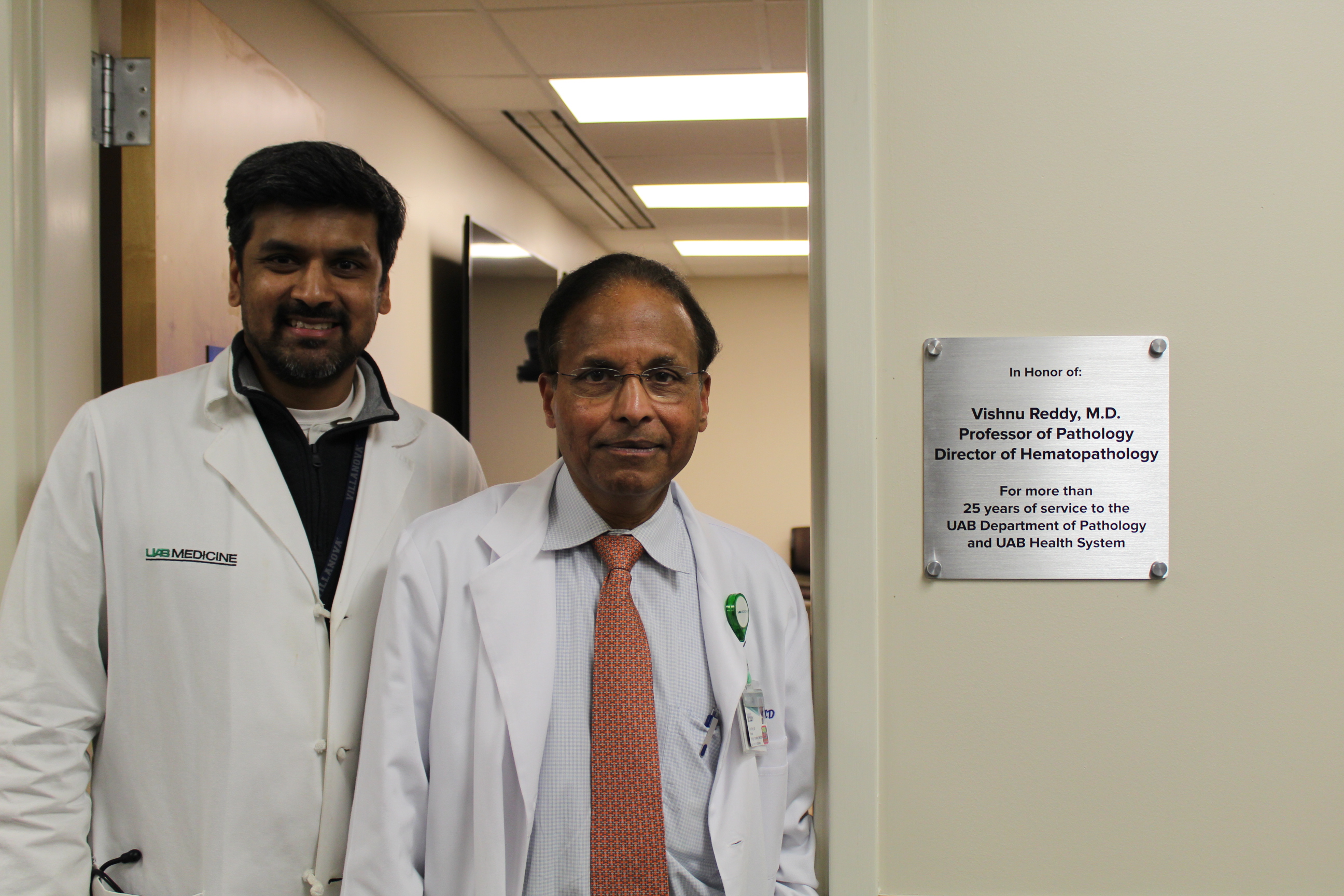
Pathology Mentorships Result in Successes in Early 2019
In 2019 so far, two postdoctoral fellows working with Upender Manne, Ph.D., Professor, UAB Pathology, won awards for presentations on their postdoctoral research.
On Monday, February 18, the UAB Postdoctoral Association, in collaboration with the Office of Postdoctoral Affairs, organized its 16th Annual Postdoctoral Research Day. The event featured six sessions and Dr. Victor Darley-Usmar, Professor, UAB Pathology, was one of the four presenters of the keynote talk, "Twenty Years of Postdoctoral Education at UAB."
The fourth session, sponsored by the O'Neal Comprehensive Cancer Center, featured studies related to cancer research. Sumit Agarwal, postdoctoral fellow of Manne, gave an oral presentation on the topic, "MicroRNA-124 modulated collagen-prolyl hydroxylase P4HA1 expression regulates colon cancer progression." Co-authors include: Balabhadrapatruni V. S. K. Chakravarthi, Michael Behring, Hyung-Gyoon Kim, Kevin Hale, Abduljalil M Alsubaie, Sameer Al Diffalha, Shajan Sugandha, Sooryanarayana Varambally, and Manne. Agarwal won third place overall for the day's events for his presentation.
In January, Michael Behring, postdoctoral fellow of Manne, attended the Second Conference on Bioethics Issues in Minority Health and Health Disparities Research. Behring presented a lab research poster titled, “Ethical Considerations for Observational Cancer Health Disparity Research,” co-authored with Kevin Hale, Bunyamin Ozaydin, and Manne.
Behring won first place for his presentation. Congratulations to both on these honors!
On February 19, Mark Pepin, Medical Scientist Training Program (below, left) student mentee of Adam Wende, Ph.D., Associate Professor, Pathology, (below, right) successfully defended his dissertation, "Genetic and Epigenetic Underpinnings of End-Stage Human Heart Failure," to receive his M.D., Ph.D. in Biomedical Engineering.